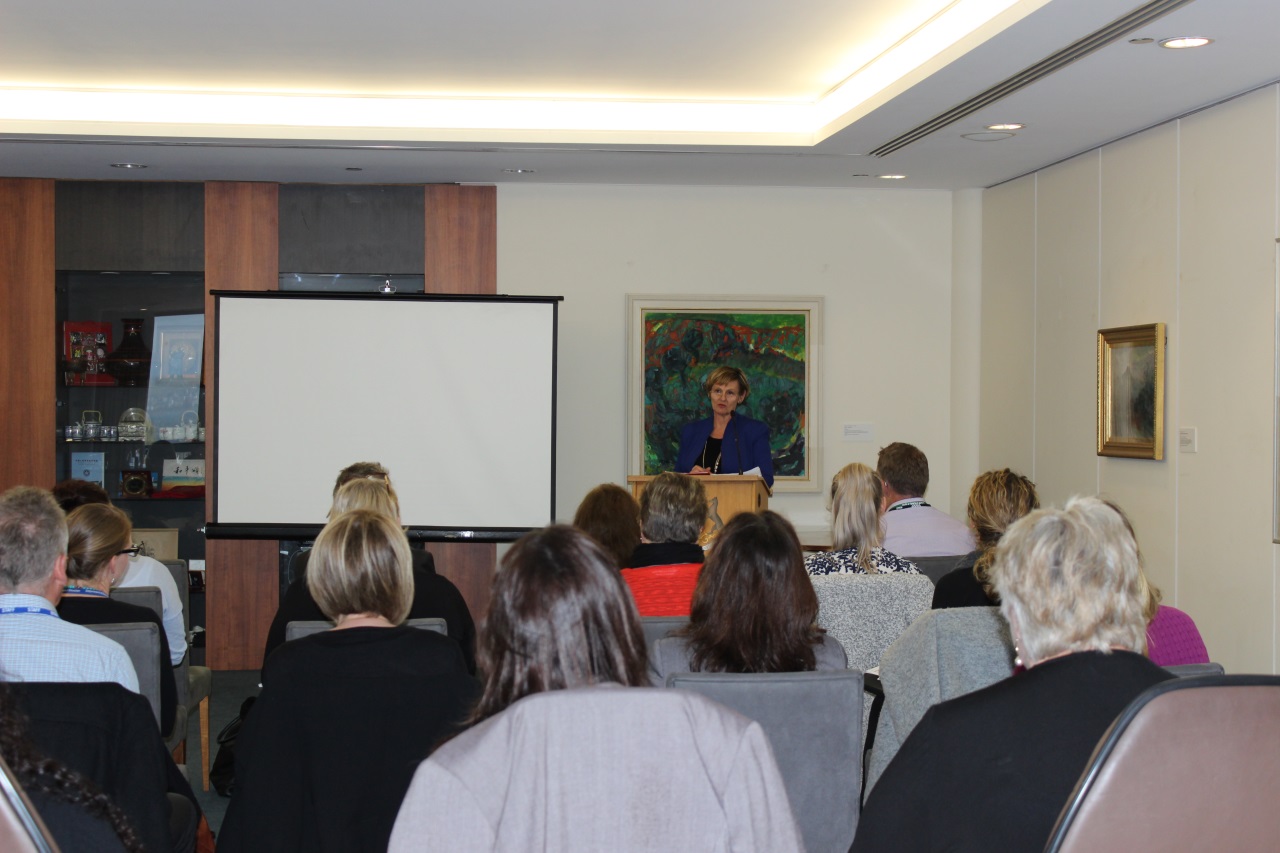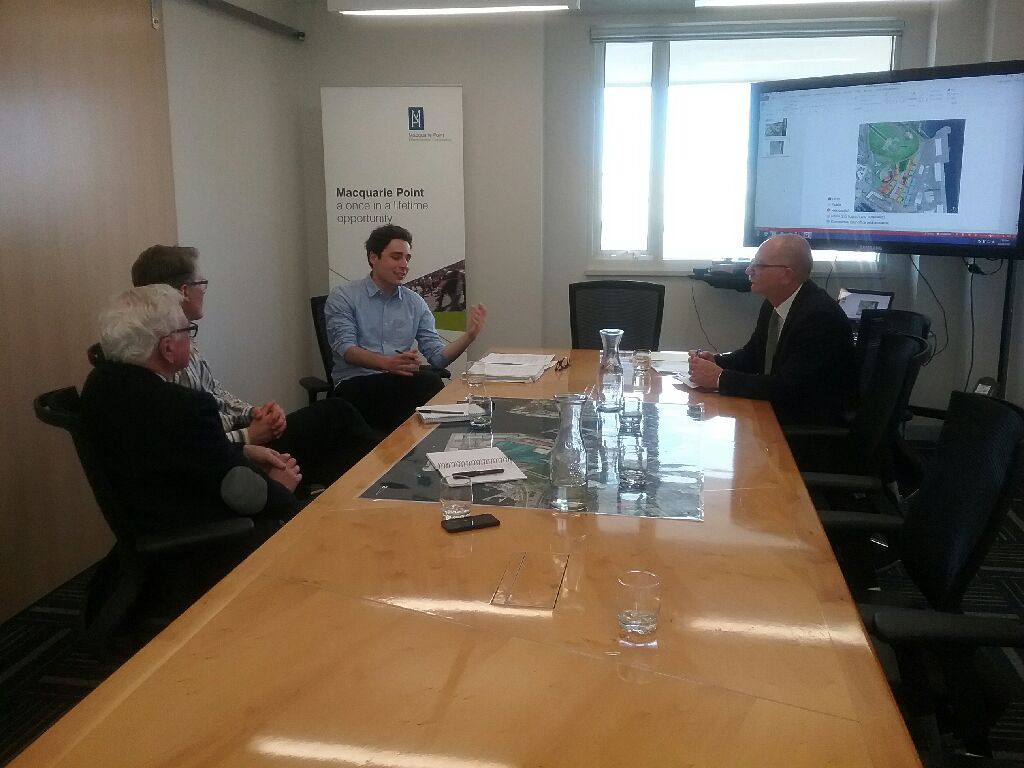
Divisions
- About the Tasmanian State Service
- Contact Us
- Aboriginal employment
- Culture of learning
- Diversity and inclusion
- Digital capability
- Employee surveys
- Employment arrangements
- Employment policy
- Managing performance
- Work health, safety and wellbeing
- Workforce planning and reporting
- Awards and Agreements
- Managing and leading change
- Senior Executives
- Managing Positions in the State Service (MPSS 2016)
- Legislation
- Coronavirus (COVID-19) Information for Staff
Contact Details
By phone
Find the number of a specific division or office to contact them directly or call Service Tasmania on 1300 135 513.
Our staff
Use the Tasmanian Government Directory to find staff contact details
Social media
Follow our social media accounts to keep up to date with specific programs and initiatives.
Chapter 6 - Building inclusive and diverse workplaces
Under the current arrangements that support workforce diversity, such a Employment Direction No. 3 - Workforce Diversity agencies determine the activities that they champion to support outcomes in this area.
In their responses to the 2015-16 Agency Survey, agencies reported that they were supporting workforce diversity and inclusion through initiatives such as participation in Harmony Day, Refugee Week, NAIDOC Week, International Literacy Day, Racism Stops with Me campaign, Multicultural Food Day, Chinese culture and awareness workshops and on-line training in cultural learning.
Other examples included the Department of Treasury and Finance, the Department of Premier and Cabinet and the Department of Primary Industries, Parks, Water and Environment’s focus on supporting gender diversity, through introducing new initiatives such as policies to make all roles flexible. To support the engagement of Chinese visitors, the Port Arthur Historic Site Management Authority has focused on providing Mandarin language training to all staff. A number of new youth-focused agency programs were also introduced, such as the Department of Health and Human Services’ and the Department of Primary Industries, Parks, Water and Environment’s new graduate and cadetship programs.
Supporting respectful workplaces
In 2015-16, the following people participated in discrimination, anti-bullying/harassment training:
- 207 senior managers
- 266 managers / supervisors
- 487 team leaders
- 9 contact officers
- 4,589 employees
* A couple of agencies could not report this information.
A number of agencies, including the Department of Education and the Department of Police, Fire and Emergency Management, also reported on the initiatives that they have been championing to support the Tasmanian Lesbian, Gay, Bisexual, Transgender and Intersex (LGBTI) community.
For example, the Department of Education developed the Sexual and Gender Diversity in Schools and Colleges and Inclusive Language Guidelines, and the Department celebrated the International Day Against Homophobia, Biphobia and Transphobia (IDAHOBIT). The Tasmanian Audit Office provided a unisex bathroom for the use of all staff, and the Department of Police, Fire and Emergency Management continued to provide training and other supports to employees through the work of its LGBTI Liaison Officers.
Workforce Diversity Project
Alongside the activities of agencies, SSMO has been working with agencies and community sector stakeholders on a project to refresh how the State Service approaches supporting workforce diversity and ensuring our workplaces are inclusive and informed by best practice approaches into the future.
In 2015-16, the workforce diversity project has overseen the development of a draft State Service Diversity Framework 2016-2020 which is due to be released by the end of 2016. The new Framework will focus on building inclusion workplaces and supporting agencies to consider how they can make routine employment policies and practices more inclusive.
The Framework includes initiatives such as supporting unconscious bias training, and building stronger relationships between agencies and community organisations with expertise in workforce diversity. The Framework will be supported by toolkits which are aimed at supporting line managers and human resource teams to consider how to make employment matters such as recruitment, mentoring, and workplace events more inclusive.
There has also been a focus on working closely with community organisations to build the capability of agencies to support inclusion, including by seeking their feedback on initiatives, as well as establishing partnerships to deliver initiatives as part of the Framework.
For example, one of the initiatives is to develop a Reasonable Adjustment Policy template (RAPT) to support agencies to employ people with disability. This project is being undertaken by SSMO in partnership with the Department of Premier and Cabinet’s Communities, Sport and Recreation division, with support from agencies, as well as stakeholders such as the Premier’s Disability Advisory Council, and the Australian Network on Disability (AND). It is anticipated that the RAPT will be implemented by December 2017.

agencies on practical ways that employers can support people with disability in the workplace.
Other whole-of-service programs
At the whole-of-service-level SSMO continues to coordinate initiatives that seek to support workforce diversity, such as by supporting a number of fixed-term registers for people with disability and Aboriginal and Torres Strait Islander people, as well as other cohort-specific programs.
One program that has continued to grow in strength is the Public Sector Internship Program, which is delivered by SSMO in partnership with the University of Tasmania. This successful Program continues to provide tertiary students with the opportunity to complement their study with practical work placements. In 2015-16 nine interns were placed in five agencies and undertook research and policy work on matters such as barriers to sharing government data; developing a disability justice strategy for Tasmania; and how to prevent sedentary behaviour in the workplace.
This Program was reviewed in 2015-16, and SSMO is working with the University to implement the recommendations, such as updating promotional and supporting information to include case studies and examples to attract students.

Peter Sheldon-Collins, Macquarie Point Development Corporation, and stakeholders
Alongside the development of the Framework and existing initiatives, SSMO’s consultation with agencies and community sector organisations about workforce diversity during the reporting period has led to the commencement of a number of new SSMO-led initiatives in 2015-16.
Many of these will continue into 2016-17, and beyond, such as:
- developing an e-learning module for all State Service employments to support disability awareness with the Australian Network on Disability (AND) and the Department of Communities, Sport and Recreation division (by December 2017);
- development of an Aboriginal Employment Strategy in partnership with the Department of Premier and Cabinet’s Office of Aboriginal Affairs and community stakeholders (by March 2017); and
- progressing Gender Diversity in the State Service and associated initiatives (by 2020).
What our employees said
- 65% of employees agreed with the statement ‘My organisation is committed to creating a diverse workforce (e.g. age, gender, cultural background)’.
- 63% of employees agreed with the statement ‘My organisation fosters an environment where all staff are treated fairly and with respect’.
* 2016 People Matter Survey results. See Appendix B for more information.
Workplace Flexibility
One of the principal ways that agencies support inclusive workplaces is through providing flexible working arrangements, such as alternative work arrangements, return to work, study leave and work location change. Some of the initiatives used by agencies in 2015-16 to support their employees’ wellbeing and workplace flexibility are described below.
Use of additional leave and formal flexible work schemes
- In 2015-16, 203 formal flexible workplace agreements were in place across six agencies. A couple of agencies stated they could not report on this data, as they only use informal flexible working arrangements, such as between employees and their direct managers.
- The Department of Premier and Cabinet and the Department of Treasury and Finance introduced policies that established flexible working arrangements as the standard arrangements for all roles.
- The State Service Purchased Leave Scheme saw a total of 728 permanent and 18 fixed-term employees participating in the Scheme in 2015-16 (across fourteen agencies) (778 participants in 2014-15).
- In addition, 310 permanent employees and 11 fixed-term employees accessed leave through the State Service Accumulated Leave Scheme (186 approved participants in 2014-15).
- Access to family leave provisions was as follows during 2015-16:
- paid parental/maternity leave – 911 employees (14 agencies);
- paid adoption leave – two employee (two agencies); and
- unpaid paternal leave – 481 employees (14 agencies).
Transition to retirement policies and practices
In their 2015-16 Agency Survey submissions, six agencies reported use of ‘Transition to retirement’ policies and practices to support their employees, although a number of other agencies stated that their support to older workers to transition to retirement were undertaken through less formal mechanisms.
What our employees said
- 67% of employees agreed with the statement ‘There is a positive attitude within my organisation in relation to employees who use flexible work practices’.
- 73% of employees agreed with the statement ‘There is a positive attitude within my organisation in relation to employees who have caring responsibilities’.
* 2016 People Matter Survey results. See Appendix B for more information.
